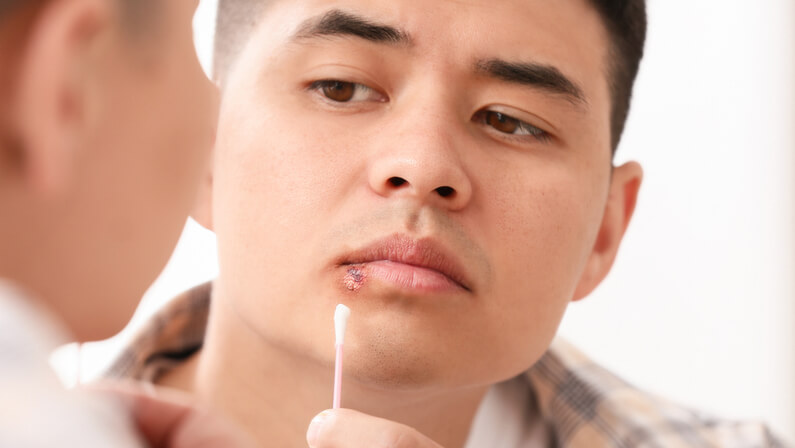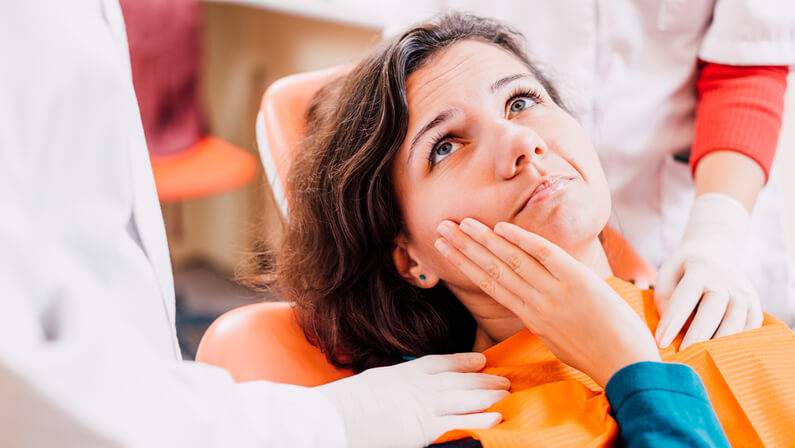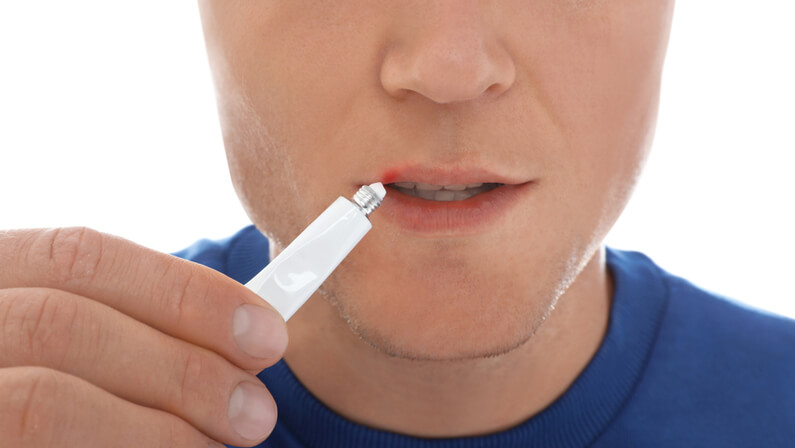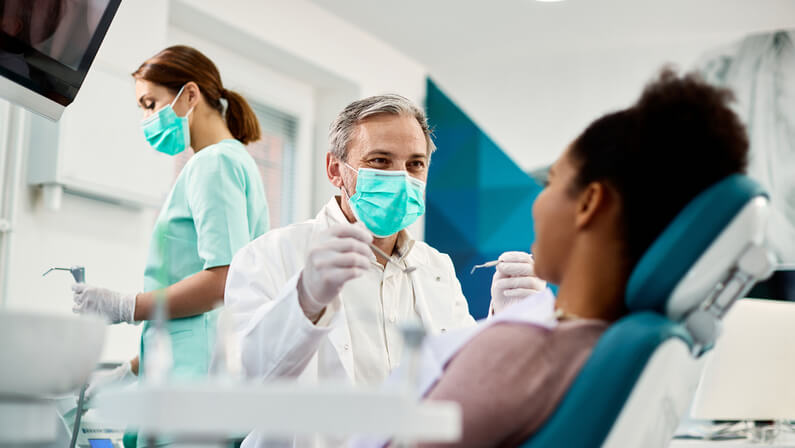So, can you go to the dentist with a cold sore? The answer is yes, you can go to the dentist, but you will need to be prepared for some possible discomfort.
In this blog post, we’ll talk about how to protect yourself from infecting others and what to expect from your visit. Keep reading for more information!
What Is a Cold Sore?

A cold sore is a small infection on the face, usually around the mouth or nose. Data show that around 80% of the US population has been exposed at some point in their lives, and many people get them several times each year. They are not usually serious, but they can be painful and uncomfortable, which is why you may want to visit the dentist even if you have it.
Although they may be uncomfortable or painful, there are ways that you can protect yourself from the further spread of the infection.
What Are the Causes of Cold Sore?
According to the Mayo Clinic, they’re caused by the herpes simplex virus (HSV). It’s a highly contagious virus that can be passed on through skin contact, kissing, or sharing items like utensils or towels.
Moreover, there are also a number of factors that can contribute to the development, including:
- Stress: Stress can cause the body to release chemicals that can weaken the immune system, making you more susceptible to infection.
- Fever: A fever can also weaken the immune system, putting you at risk of developing a cold sore.
- Diet: Eating a diet that is low in nutrients may also make you more prone to developing cold sores.
- Hormonal changes: This can include things like menstruation, puberty, and pregnancy.
- Weakened immune system: If you have a condition that weakens your immune system, you may be more likely to develop cold sores.
- Certain medications or treatments such as corticosteroids, radiation therapy, or chemotherapy: Can weaken the immune system and make you more susceptible to developing active cold sores.
Does dental work trigger cold sores?
Dental work can trigger cold sores in some people. This is because dental procedures can cause stress and trauma to the lips, which can make the virus more active and cause it to become infected. However, there are steps you can take to protect yourself from spreading the infection and to minimize any discomfort or pain.
These include:
- Taking antiviral medications
- Using a lip balm to protect the skin from irritation
- Avoiding touching other parts of your body after the procedure

What Are the Symptoms of Cold Sore?
The most common sign of a cold sore is a small, fluid-filled blister that appears on the lip or around the mouth. Other symptoms are:
- Pain or burning around the affected area
- Itching or tingling sensations near the blisters
- Redness
- Fever
- Sore throat
- Swollen lymph nodes
- Dry mouth
How Are Cold Sores Treated?
There is no cure for cold sores, but they usually go away on their own within a week or two. There are also ways to manage the symptoms and reduce the duration of the outbreak.
Treatment options include:
- Cold sore creams or ointments: These can help to soothe the pain and speed up the healing process.
- Antiviral medication: This can be prescribed by your doctor and taken orally or applied directly to the cold sore.
- Pain relief medication: This can help to ease any pain associated with the cold sore.

How Are Cold Sores Spread?
Cold sores are spread through direct contact with an infected area, usually through kissing or sharing items like utensils or linens. It’s important to take precautions to prevent the spread of it.
How To Prevent Cold Sore?
There are a number of things you can do to prevent the spread of the virus that causes cold sores, including:
- Avoid close contact with people who have cold sores
- Avoid sharing utensils, towels, or other personal items with someone who has a cold sore
- Wash your hands frequently
- Avoid touching your eyes, nose, or mouth
- Maintain good oral health and observe dental hygiene
- Drink plenty of water
Can I Go to the Dentist With a Cold Sore?

Yes, you can go to the dentist with a cold sore. However, it is important to take some precautions to prevent the spread of infection to others as mentioned above.
Getting a dental treatment with a cold sore can be a little uncomfortable, but it is not impossible.
The first thing you need to do is make sure that you have taken care of it before you go to the dentist.
If your cold sore is in the healing stage, it can be a little painful when the dentist cleans your teeth. You may want to take pain medication before you go in, or talk to your dentist about an antibiotic if you are prone to it.
Another thing you need to think about is protecting yourself against cold sore outbreaks. The best way to protect yourself is by using a lip balm that contains sunscreen and wearing a wide-brimmed hat or sunglasses when you are outdoors.
You should also avoid kissing or sharing utensils with someone who has a cold sore. And, of course, you should always wash your hands before and after touching them.
In general, you should be able to go to the dentist with a cold sore while your teeth hurt without any problems. But it is important to take precautions and work closely with your dentist to make sure that you get the care you need.
So, if you’re feeling under the weather and have a cold sore, don’t panic! You can still go to the dentist, but there are a few things you need to know first. Make sure you protect yourself from infecting others and schedule an appointment with Brownstone Dental today. We’ll take care of everything for you so that your visit goes as smoothly as possible.